More than 120 killed in earthquake in Tibet's holy city of Shigatse
A strong earthquake struck the Himalayas in southern Tibet. According to Chinese official media reports, 126 people have been confirmed dead and 188 injured.
The earthquake occurred at 09:05 Beijing time (01:05 GMT) on Tuesday (January 7). The United States Geological Survey (USGS) measured it as 7.1 on the Richter scale (7.1 on the Richter scale). The epicenter was located in Dingri County, Shigatse City, near the Nepal border, with a focal depth of 10 kilometers.
The earthquake was followed by several aftershocks, which were also felt in Nepal, Bhutan and northern India on the other side of the Himalayas. The region is prone to seismic activity as it lies on a major geological fault line.
Chinese President Xi Jinping ordered an all-out search and rescue and treatment of the injured to minimize casualties; the Dalai Lama, the spiritual leader of the Tibetan exiles, prayed for the victims and the injured and expressed condolences to their families.
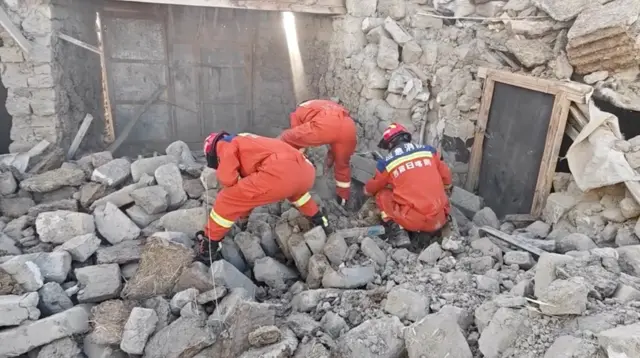
Rescue Operations
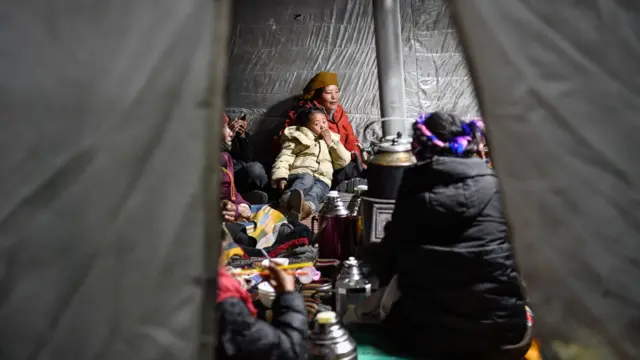
The earthquake was one of the deadliest in China in recent years. In December 2023, a 6.2-magnitude earthquake struck Jishishan County, Gansu Province, killing more than 150 people.
Video footage released by China Central Television (CCTV) showed many houses destroyed and buildings collapsed in the earthquake-hit area, with rescue workers searching for survivors in the rubble and distributing thick blankets to local residents.
According to the China Meteorological Administration, the temperature in Dingri County near the epicenter is about minus 8 degrees Celsius and will drop further to minus 18 degrees Celsius at night.
Local power and water supply systems have been cut off.
The China Earthquake Networks Center measured the quake at a slightly lower magnitude than the U.S. at 6.8, with authorities saying it was "clearly" felt, with more than 1,000 houses damaged and several strong aftershocks.
Jiang Haikun, a researcher at the China Earthquake Networks Center, told CCTV that earthquakes of magnitude 5 o r so may still occur in the future, but the possibility of a larger earthquake is low.
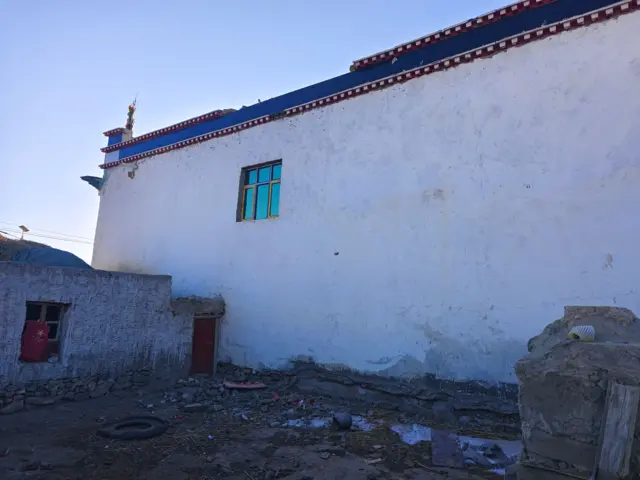
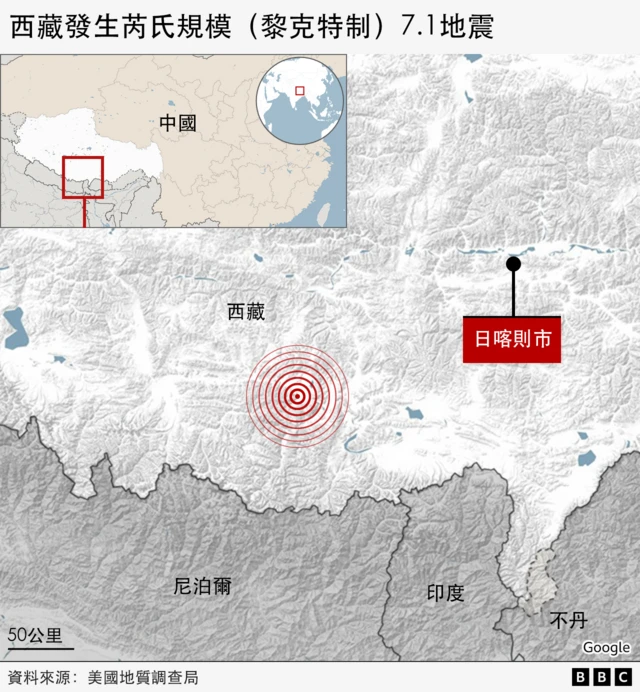
Sacred Ground
Shigatse is one of the holy cities in Tibet and the traditional residence of the Panchen Lama, whose status in Tibetan Buddhism is second only to the Dalai Lama.
In 1995, the Chinese government took away Gedhun Choekyi Nyima, who was confirmed to be the reincarnation of the Panchen Lama, and his whereabouts remain unknown to this day. China then designated a Panchen Lama on its own.
The current Dalai Lama, who fled to India in 1959, has become another symbol of authority for many Tibetans who oppose Beijing's control. Many fear that China will also appoint its own successor when the current Dalai Lama dies.
Tingri County, which is under the jurisdiction of Shigatse, is located in the Himalayas and has a population of 60,000. The base camp for climbing Mount Everest (Mount Everest) from China is located in the county.
According to local media reports, the Mount Everest sightseeing tour originally scheduled for Tuesday morning has been canceled, the scenic area has been completely closed, and the three tourists in the scenic area have been transferred to a safe area outdoors.
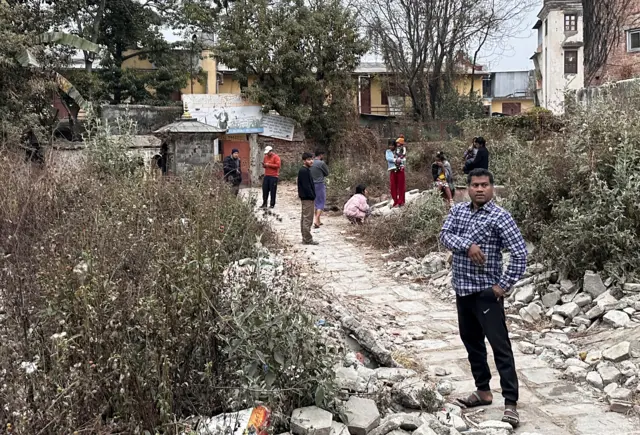
People are still in shock
Beijing has maintained tight control over Tibet since China annexed the autonomous region in the 1950s, a period described by Chinese authorities as a "peaceful liberation."
A hotel guest in Shigatse told Chinese media Cover News that he was awakened by a strong shaking. He said he grabbed his socks and hurried to the street and saw a helicopter hovering in the sky.
"It felt like even the bed was lifted up," he said, adding that he immediately realized it was an earthquake because Tibet had experienced a number of small earthquakes recently.
The Chinese Air Force has launched a rescue operation and sent drones to the disaster area.
Chinese President Xi Jinping called for an all-out search and rescue effort to minimize casualties and properly resettle the affected residents.
Although the quake was also felt in Nepal, no major damage or casualties were reported. An official at Nepal's National Emergency Operations Centre told BBC Newsday that there were only "minor damage and cracks in houses".
The earthquake zone is located on the main fault zone where the Indian Plate and the Eurasian Plate meet, and earthquake activity is frequent. In 2015, a 7.8-magnitude earthquake occurred near Kathmandu, the capital of Nepal, killing nearly 9,000 people and injuring more than 20,000.
Tuesday morning's earthquake brought back memories of that disaster for residents of Kathmandu.
"During the 2015 earthquake, I couldn't even move," local shop owner Manju Neupane told BBC Nepali. "The situation today is not as terrible, but I am afraid another big earthquake will hit and trap us between tall buildings."
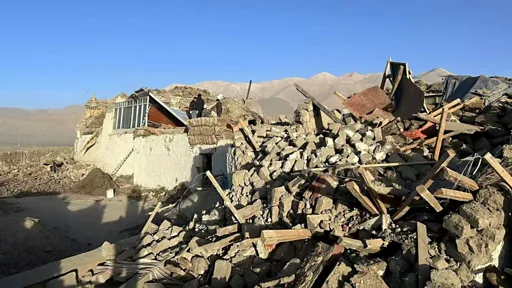
Comments
Post a Comment